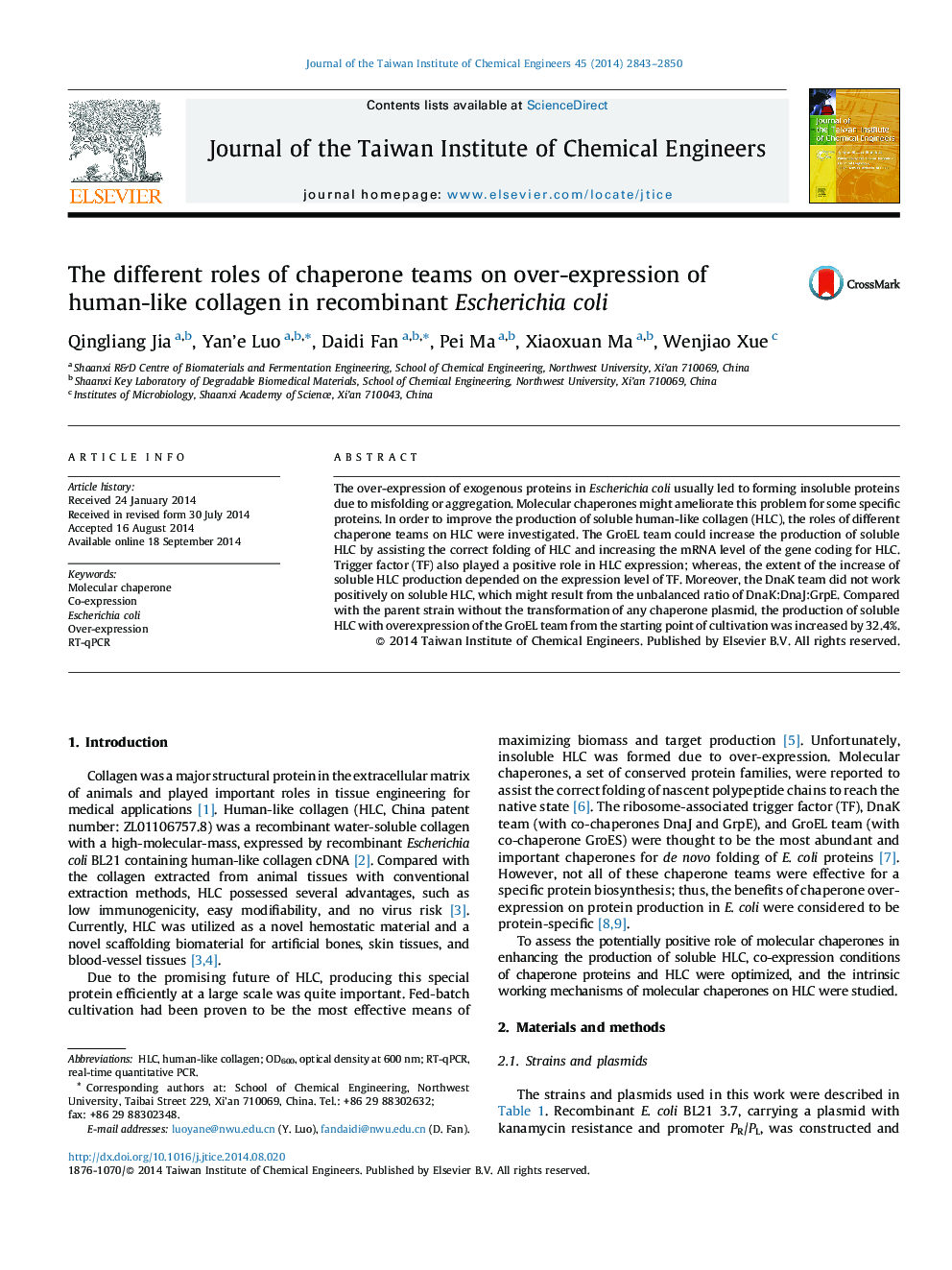| کد مقاله | کد نشریه | سال انتشار | مقاله انگلیسی | نسخه تمام متن |
|---|---|---|---|---|
| 691134 | 1460429 | 2014 | 8 صفحه PDF | دانلود رایگان |

• Overexpression of GroEL system increased the accumulation of HLC significantly.
• GroEL system played positive roles on HLC at process of transcription and folding.
• TF could assist the correct folding of small polypeptides and large proteins.
• The amount of TF was important for TF to work positively on HLC folding.
• Overexpression of DnaK system impaired the HLC synthesis and cell growth.
The over-expression of exogenous proteins in Escherichia coli usually led to forming insoluble proteins due to misfolding or aggregation. Molecular chaperones might ameliorate this problem for some specific proteins. In order to improve the production of soluble human-like collagen (HLC), the roles of different chaperone teams on HLC were investigated. The GroEL team could increase the production of soluble HLC by assisting the correct folding of HLC and increasing the mRNA level of the gene coding for HLC. Trigger factor (TF) also played a positive role in HLC expression; whereas, the extent of the increase of soluble HLC production depended on the expression level of TF. Moreover, the DnaK team did not work positively on soluble HLC, which might result from the unbalanced ratio of DnaK:DnaJ:GrpE. Compared with the parent strain without the transformation of any chaperone plasmid, the production of soluble HLC with overexpression of the GroEL team from the starting point of cultivation was increased by 32.4%.
Journal: Journal of the Taiwan Institute of Chemical Engineers - Volume 45, Issue 6, November 2014, Pages 2843–2850